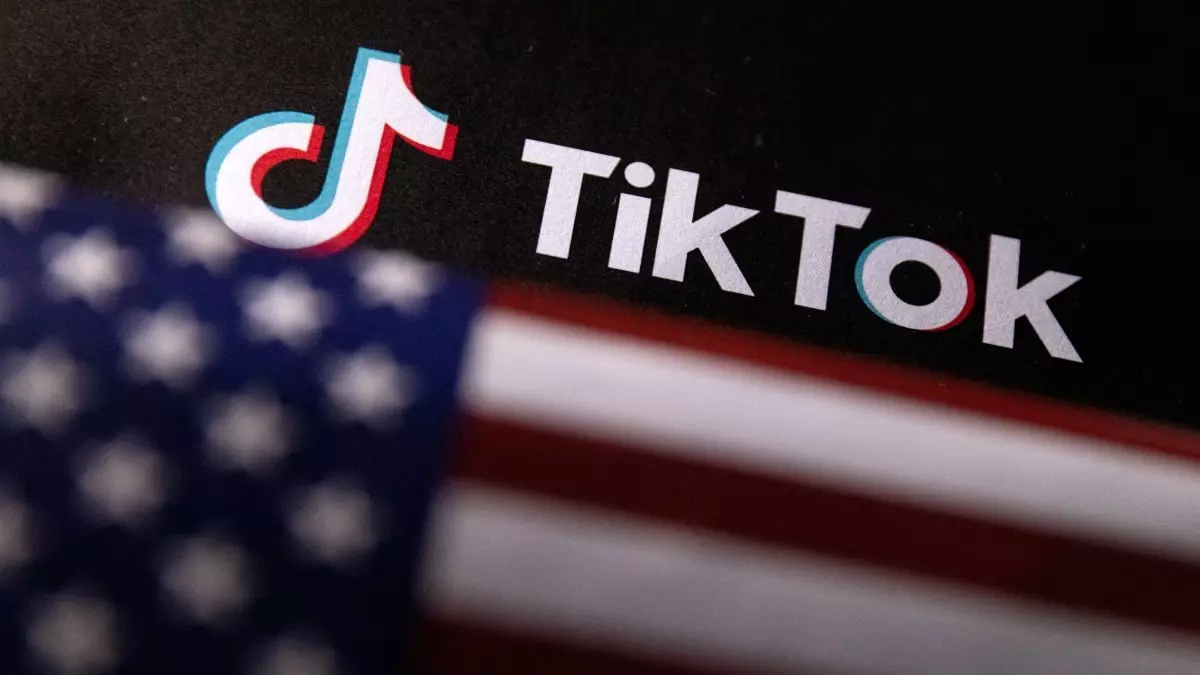As digital platforms increasingly shape our reality, few controversies have captivated both the public interest and government scrutiny quite like TikTok. The return of the app to U.S. app stores has amplified discussions surrounding data privacy, national security, and the government’s role in regulating foreign-owned tech businesses. This article delves into the complexities surrounding TikTok’s operational status in the United States, the implications of governmental interventions, and the intricate balance between security and innovation.
TikTok’s temporary re-entry into Apple and Google’s U.S. app stores reflected the shifting ground in the ongoing U.S.-China tech saga. Following President Trump’s executive order which deferred a complete ban for 75 days, tech giants found themselves in a precarious position. The U.S. government had raised pressing national security concerns regarding the app, owned by the Chinese company ByteDance. With nearly half the American populace engaging with the platform, its sudden unavailability could have had adverse effects not only on users but also on the broader digital economy.
Following a brief blackout period, the decision to allow TikTok to resume service was marked by the necessity to reassure major tech companies. Analysts suggested that hesitation on the part of Apple and Google may have stemmed from concerns over potential penalties for facilitating the app. By reassuring these corporations that they would not face prosecution or fines, the U.S. government positioned itself as a mediator between national security interests and the economic realities of a digital marketplace.
The App’s Popularity vs. National Security Concerns
Despite the controversies, TikTok thrived, racking up approximately 52 million downloads within the U.S. alone in early 2024, a staggering figure that underscores its popularity. Sensor Tower’s data demonstrates that a significant portion of these downloads originated from Apple’s App Store. The app’s ability to captivate a predominantly younger audience has rendered it not just a form of entertainment but a considerable player in influencer marketing and brand engagement.
However, the undercurrents of security fears lingered. The Biden administration’s embracing of potential bans or enforced divestitures points to a staggering dichotomy; a platform synonymous with creativity and cultural exchange raises alarms as a potential conduit for espionage. The apprehension surrounding TikTok speaks volumes about the distrust plaguing U.S.-China relations and prompts a serious discussion about the tech industry as a battleground for national interests.
As tensions between the U.S. and China escalate, so too does interest in acquiring TikTok. The app’s immense valuation—projected to reach $50 billion—has attracted not just eager investors but entities from various sectors looking to capitalize on its growth trajectory. Former Los Angeles Dodgers owner Frank McCourt is among those interested in the potential acquisition, underlining the notion that TikTok’s future is both lucrative and contentious.
President Trump indicated that he was engaged in talks with multiple stakeholders, suggesting a flurry of negotiations unfolding behind closed doors. Any acquisition would not only hinge on financial metrics but would also require a lengthy dialogue about data protection and user privacy—questions that have yet to be definitively addressed in existing regulatory frameworks.
The journey of TikTok in the U.S. remains uncertain; Trump’s potential extension of the 75-day delay adds to the precariousness of the situation. As we grapple with the implications of a future where national security and digital innovation collide, governments will need to reconcile their power over these platforms without stifling creativity and free expression.
Society stands at a crossroads—where the allure of Tiktok’s engaging content meets the apprehensions of data misuse. The path forward necessitates a critical examination of existing policies and perhaps the creation of new guidelines tailored to the nuanced realm of digital technology. As conversations continue and stakeholders voice their opinions, one thing is clear: TikTok is emblematic of broader societal dilemmas and will likely serve as a potent reminder of the inevitable interplay between innovation and regulation.


Leave a Reply